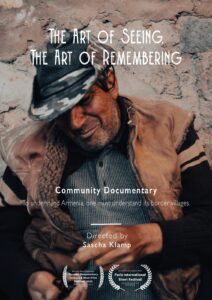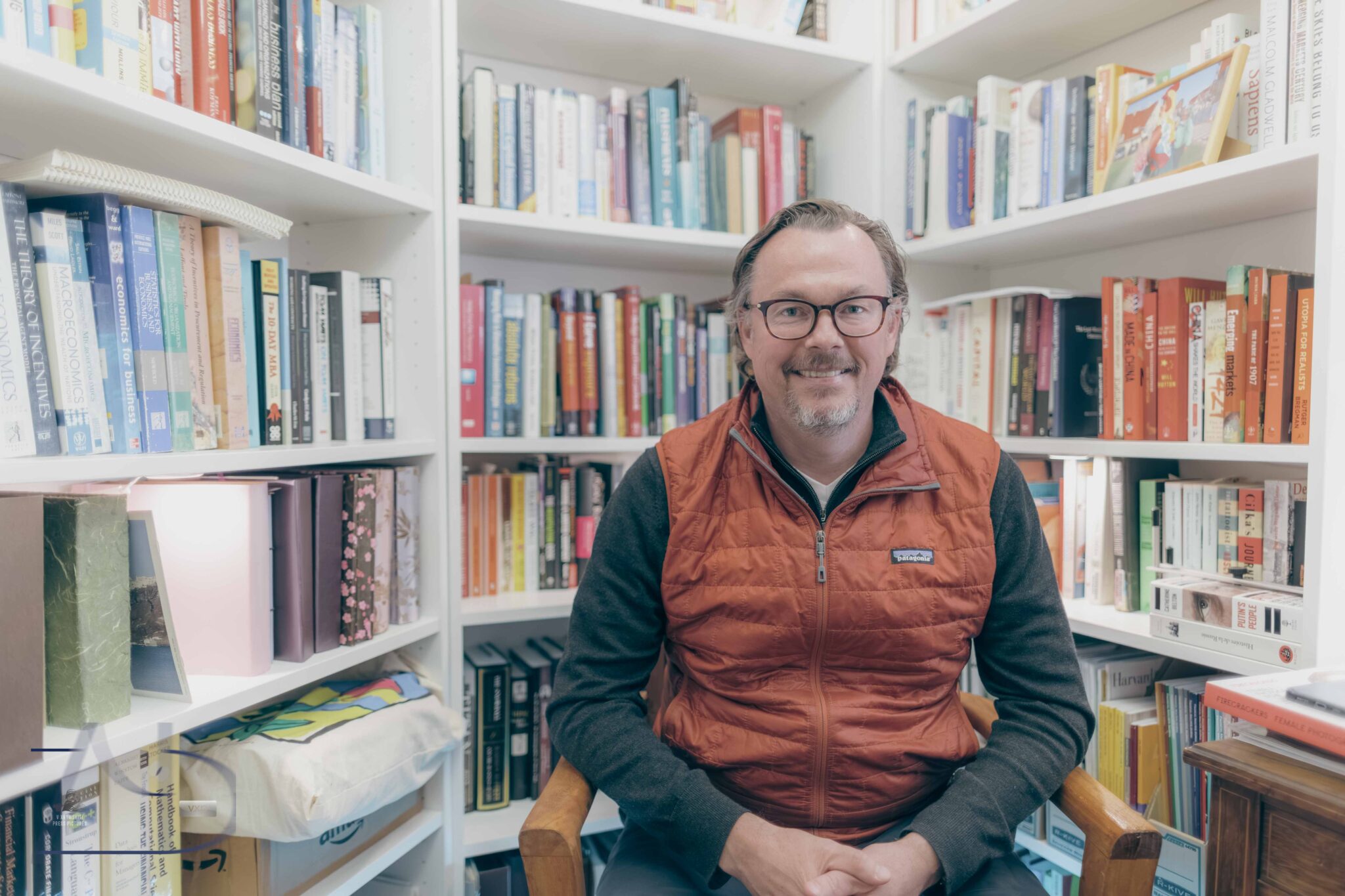During our conversation, Sascha Klamp, the gifted German/British photographer and filmmaker, shared his inspiring project in Kosovo with me. It was founded on two pivotal questions: “How do I do it?” and “When do I do it?”. The noble intention of his venture was to uplift families and children who were grappling with challenging circumstances.
Over the span of a year, Sascha intends to meet with families both before and after the birth of their child, engaging them in meaningful conversations about their dreams and aspirations for the future. His project, “The Art of Seeing, the Art of Remembering”, is a testament to his passion for social justice issues.
As residents of London and alumni of the same institution (whose identity we will discreetly omit), Sascha and I crossed paths in Kosovo, where we struck up a rapport. I was deeply moved by his ideas and felt the urge to showcase his work to a wider audience. We agreed to reconvene in London for a photo shoot and a candid conversation.
On April 25, I arrived at Sascha’s family home in north-east London, where he greeted me with a swish car that proved snug for my frame. We drove to his residence, where we were greeted with warmth by his charming wife and their lively Golden Retriever, Watson. After briefly discussing politics, a topic that held significance for both of us, we began recording our conversation.
Sascha’s recent achievements are truly remarkable, including his award-winning documentary film that serves as an inspiration to many. As an investor and entrepreneur, Sascha leverages his experience to create impactful photography that highlights the importance of social justice issues. His passion for uplifting families and children in Kosovo and Armenia is a testament to his unwavering commitment to making a positive impact in the world.

The Art of Remembering.
Sascha Klamp.
Sascha Klamp’s recent project, “The Art of Seeing, The Art of Remembering,” is a powerful collaboration with the community of Khachik in the Vayots Dzor region of Armenia. The project aims to preserve the memories and identity of a typical border village, by scanning family photo albums of the families in the community. The goal is to create a community archive that supports issues of identity, memory, and self. What makes this initiative noteworthy is its not-for-profit nature, underscoring that the project is aimed at benefiting the community rather than serving personal interests.
“The Art of Seeing, The Art of Remembering” (2023) is a poignant film that features the Image as the Protagonist. Sascha collaborated with two distinct Armenian communities, traditional border villages that face potential resistance from their hostile neighbours. The film delves into the set-up of a Community Archive with village Elders, while also juxtaposing how teenagers view a single Polaroid image in the world of social media. Through its exploration of the communities and individuals’ understanding of Identity, Memory, and Self in adverse conditions, the film provides a glimpse into the hope and opportunities that exist for adolescence in particular.
The film highlights the resilience of these communities and their ability to preserve their cultural heritage in the face of adversity. Through the lens of the Image as the Protagonist, Klamp captures the essence of the communities and their struggles, highlighting the importance of preserving their memories and identity. It provides a powerful reminder of basic human solidarity with the Armenian people.
One of the most striking aspects of the film is its exploration of teenagers’ perception of the Image in the age of social media. It highlights the tension between the preservation of cultural heritage and the need to adapt to a rapidly changing world. The juxtaposition of the traditional and the modern underscores the importance of finding a balance between the two.
The community’s permission to represent their stories on a global stage is a significant achievement. The project’s ambition to give the local project leader access to a portal to approve uploads from the Diaspora and others ensures that the community remains in control of the contributions. It is a moving film that provides a powerful mirror, reminding the viewer of basic human solidarity with the Armenian people.

In today’s rapidly changing world, the preservation of cultural heritage is a topic of great importance. As modernisation and globalisation accelerate, there is a risk of cultural homogenisation and the loss of diverse cultural practices and traditions. To counteract this trend, community-driven initiatives aimed at preserving cultural heritage are gaining momentum. These initiatives not only provide examples of how diverse cultural practices can be sustained and celebrated but also help to build and strengthen community bonds by fostering a sense of shared identity and belonging.
Preserving cultural heritage is not just about maintaining traditions for the present generation but also for future generations. It is about recognizing the value of cultural diversity and the role it plays in enriching humanity’s shared global heritage. These initiatives are a reminder that cultural heritage is not just a matter of individual or national identity but also of collective global identity.
The exhibition and submission of the short film to select short film festivals will help create awareness and appreciation of the project’s objectives, and it is hoped that more communities will embrace similar initiatives. In a world of political upheaval and armed conflict, Sascha Klamp’s work serves as a powerful reminder of the importance of preserving cultural heritage and promoting social justice.
Such initiatives aimed at preserving cultural heritage and promoting identity and memory play a crucial role in safeguarding humanity’s diverse history and traditions.


